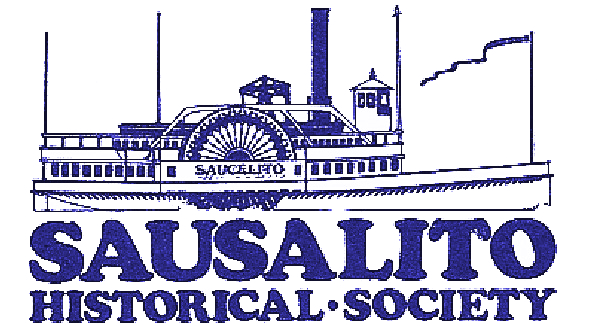By Dana Whitson and Larry Clinton, Sausalito Historical Society
PHOTO COURTESY OF SAUSALITO HISTORICAL SOCIETY
Joseph James performing at Marinship.
We’ve written before about Joseph James, the black Marinship welder who played a brief but important role in Sausalito and Marin City’s history by successfully challenging discriminatory union practices in the shipyards in a case that went all the way to the State Supreme Court.
But there was a whole different side to James – as a singer featured in numerous Broadway and Hollywood productions. Here’s a profile of this fascinating figure that Dana Whitson wrote for the Historical Society newsletter in 2017:
Joseph Henry James was born in 1910 in Philadelphia to poor black parents. Left fatherless at age 3, he and his mother moved in with his uncle, Henry Hamming. The entire family was musically gifted: Uncle Henry had a rich bass voice, his mother was an alto and a much older sister sang with the great Philadelphia contralto, Marion Anderson.
“Life wasn’t soft for Negro kids with nothing but the streets to play in,” Joe told a reporter in 1945. “My mother could see that from a little innocent window breaking I’d soon enough be hitting the big time, so a year after she died, I was packed off to Princess Ann Academy, a Negro boarding school in Maryland.”
Music became Joseph James’ ticket to a college education and extensive travels in the US and abroad. Princess Ann Academy enlisted James in a prestigious black quartet that toured to raise funds for the school singing “Negro Spirituals” to live and radio audiences.
After graduation, the quartet shopped for another black college willing to fund their studies, landing at Claflin College in South Carolina. Traveling for the first time to the Deep South was an eye opener. In Norfolk the group had to transfer to the “rattletrap” Jim Crow rail car. Unable to access the whites-only dining car, James recounted being shooed away at the front door of a restaurant at one stop and “directed to a little window in the back of the restaurant, something like the door of a dog house, where they’d throw food at you. It kind of took my appetite away---and that’s some kind of trick for an 18 year old kid still growing.”
Two years of traveling for Claflin and a tour stop in Boston led James to conclude “there was more to this music game than I’d ever learn in South Carolina. So, I stayed in Boston and sang on the radio. Later, I decided to find out how music was put together and learn about the guys who did it.”
James broadened his musical education at Boston University College of Music until the Depression brought home the realization that he could either “eat or play music.” So, he joined an amateur theater production that enjoyed a brief run on Broadway. Just as that opportunity ended, the famed black choir director and composer Eva Jessye, invited him to join her choir’s national tour.
Touring with the celebrated choir was anything but luxurious. “Almost 20 of us jammed into two seven passenger sedans covered with suitcases and trunks,” James recalled. “We covered 6,000 of the most agonizing miles I have ever traveled---breaking down all the way.”
Returning to New York he was cast by choral director Eva Jessye in the premiere of Porgy and Bess. After Porgy, James joined the Hall Johnson choir in the chorus of the film The Green Pastures. James stayed briefly in Hollywood, playing bit roles in films, “mostly running around like a savage in a G-string… feeling pretty silly.”
Joseph James’ big break came with the Federal Theater Project Negro Unit (FPT). The FPT was a branch of the Works Progress Administration that employed (literally) starving artists to perform for the masses. His first title role was as Brother Moses in Hall Johnson’s critically acclaimed LA, San Diego and San Francisco productions of Run Little Chillun’. James later starred in the FPT production of the Swing Mikado, a modernized version of Gilbert and Sullivan’s comic opera presented at the 1939 Treasure Island Exposition.
In a “tragic-comic” twist, Joseph James was rehearsing the song “Good News” for the movie Tails of Manhattan when he learned of the Pearl Harbor attack. His singing engagements suddenly evaporated, so he returned to San Francisco looking for work. Being interested in mechanics, he took a welding course at Samuel Gompers Trade School. In August 1942, he began as a welder at Marinship.
Although only in his early 30’s, Joseph James’ early experiences had prepared him well for the many roles he played during WWII: expert welder sent to trouble spots in the shipyard; lead organizer for the struggle against discriminatory union practices; popular leader among the diverse family of shipyard workers; NAACP Chapter President in San Francisco; and outspoken patriot in the battle to defeat the fascist Nazi and Axis powers; and, yes, part-time singer.
Ironically, the California Supreme Court Marinship decision came after the war had ended and the shipyard was closed. But it did not end Joseph James’ activism. Before departing the west coast in 1946 to resume his musical career, he joined Noah Griffin, Sr. in founding Marin County’s first NAACP chapter.
Joseph James performed in 15 more Broadway shows before touring internationally with Leontyne Price, William Warfield, Cab Calloway and Maya Angelou in Porgy and Bess. Later in life he became a union organizer for the SEIU in the Bronx.
Joseph James died in 2002 at the age of 91
“One thing the Depression taught the American people is that when they came together around common problems, they could accomplish something. Now it seems that working people have forgotten that.” ~ Joseph James, 1992

